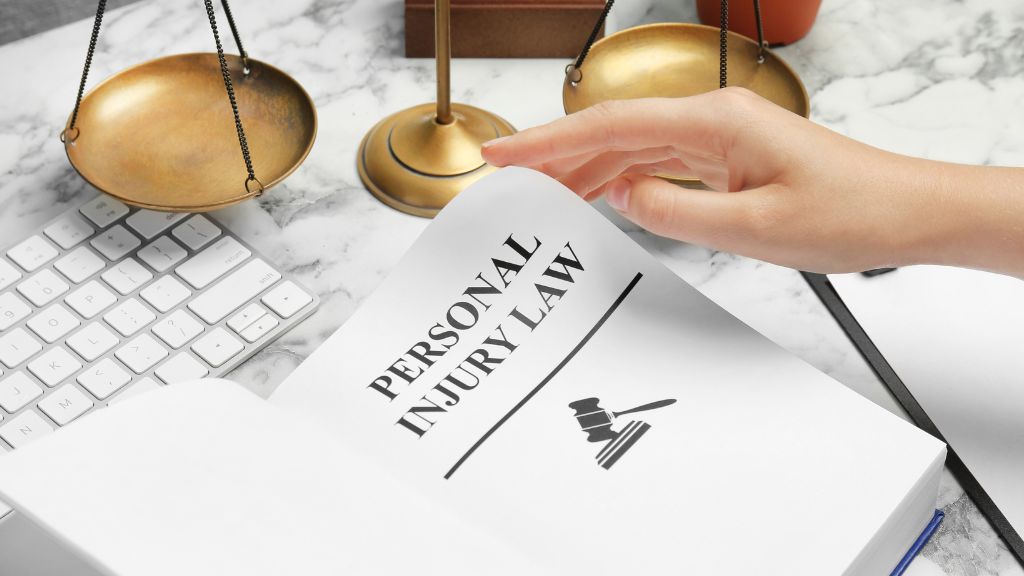you’ve just experienced a serious injury. The pain is real, the uncertainty overwhelming, and now you’re stepping into the legal world to fight for what’s fair. But as you pursue compensation, you realize your most personal details—your health, your finances, even private conversations—could suddenly be exposed. The thought of losing control over your story, your privacy, and your dignity can be just as stressful as the injury itself.
If you’re facing an injury lawsuit, you’re probably worried about who might access your sensitive information. The good news? With the right steps and support, you can keep your privacy intact and focus on healing. This guide will walk you through practical, effective ways to protect your personal information during an injury lawsuit—so you can regain peace of mind while pursuing the justice you deserve.
Understanding Your Privacy Rights in an Injury Lawsuit
Filing an injury lawsuit does mean sharing some personal information, but it doesn’t mean giving up all your privacy.
The law draws a careful line between what must be disclosed and what remains protected.
For example, federal regulations like the Health Insurance Portability and Accountability Act (HIPAA) shield your medical records from unnecessary exposure. Only information directly related to your claim—such as medical records for your injury—should be disclosed. Your attorney is there to ensure this boundary is respected.
Discovery, the process where both sides exchange information, can feel intrusive. But your lawyer can object to requests that are too broad and seek protective orders or confidentiality agreements to limit what’s shared and keep sensitive details out of the public record.
Remember, your privacy rights are not lost just because you’re seeking justice; they are protected by law and by your legal team’s advocacy.
Key Steps to Protecting Your Privacy During a Lawsuit
Limit Disclosure to Only What’s Necessary
Your attorney is your privacy advocate. From the start, work together to define what information truly needs to be shared.Only provide medical, employment, or financial records that are directly related to your case.If the other side asks for information that feels irrelevant or too broad, your lawyer can formally object and try to restrict disclosure.
For example:
If you’re claiming a back injury from a car accident, only your medical records related to that injury should be open for review—not your entire health history.
Confidentiality agreements and protective orders can help keep sensitive information out of public court records.
Be Mindful of Social Media and Digital Footprints
Social media can be a real trap during an injury lawsuit. Insurance companies and defense attorneys often search social platforms for anything that could weaken your claim. Even with strict privacy settings, your posts, photos, and comments might be used as evidence—and deleting them later can backfire.
Here’s how to keep your social media privacy safe while you’re being sued:
- Don’t post about your injury, recovery, or case details.
- Avoid sharing photos or updates that could be misunderstood (like pictures of you being active if you’re claiming limited mobility).
- Tighten your privacy settings, but know this isn’t foolproof.
- Ask friends and family not to tag you or discuss your situation online.
- Until your case is resolved, think about stepping away from social media.
If you must use social media, be extremely careful and consult your attorney about what’s safe to share.

Establish Secure Communication with Your Legal Team
Your conversations with your attorney are protected, but it’s still important to communicate securely. Use encrypted email, secure document-sharing platforms, and avoid discussing your case details in public or over unsecured channels. From the beginning, set clear boundaries with your legal team about what information is shared, how it’s shared, and who has access. Your attorney should guide you on what’s relevant and help you avoid unnecessary disclosures. Open, secure communication is your first line of defense against privacy breaches.
Practical Tips for Safeguarding Personal Information
- Review all documents before signing or submitting them to ensure they don’t contain extra personal details.
- Ask that sensitive documents be filed under seal or redacted in public court filings.
- Use strong, unique passwords for any online accounts related to your case.
- Keep physical documents in a secure, locked place.
- Be cautious of unsolicited requests for information—scammers sometimes target injury victims.
Frequently Asked Questions
Only information directly related to your claim—such as medical records for your injury—needs to be disclosed. Your attorney can object to requests for irrelevant or overly broad information.
Yes. Social media activity—including photos and comments—can be used as evidence—even if your account is private. Avoid posting about your case or injury until your lawsuit is finished.
HIPAA protects your medical records, but you’ll need to share only those directly related to your injury. Your lawyer can help ensure only necessary records are disclosed and can seek protective orders to limit access.
Tell your attorney right away. They can object to improper information requests, ask the court for help, and file complaints if your privacy rights are being ignored.
Conclusion
Your injury lawsuit is about seeking justice and rebuilding your life—not giving up your privacy. By understanding your rights, working closely with your attorney, and being careful about what you share (both online and offline), you can protect your personal information from unnecessary exposure.
Remember: you have the power to set boundaries, ask questions, and demand respect for your privacy every step of the way.
Take a deep breath. You’re not alone in this. With the right guidance and support, you can safeguard your privacy and focus on what truly matters—your recovery and your future.
Content Source:
HIPAA, Discovery, Protective Orders, Confidentiality Agreements, Social Media, Secure Communication, Encrypted Email, Redacted Filings, Strong Passwords, Scammers